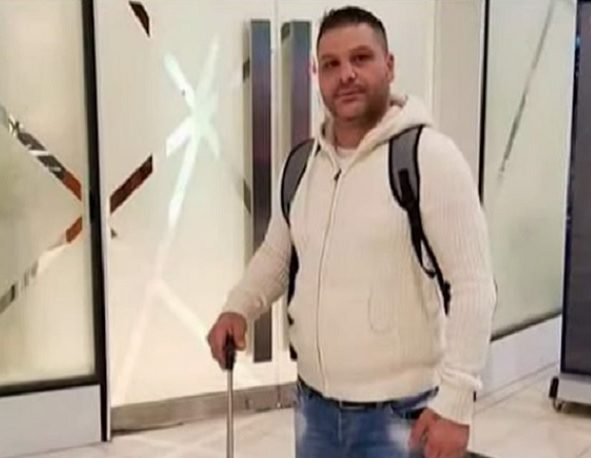The family of Viken Euljekian, one of the 23 Armenian prisoners held in Azerbaijan, appealed again on Tuesday for his release, warning that his health has sharply deteriorated and that he is not receiving necessary medical care in prison.
Euljekian, a Lebanese-born Armenian who moved to Artsakh (Nagorno-Karabakh) and worked as a taxi driver there, was captured along with Lebanese-Armenian national Maral Najarian on November 10, 2020, hours after the Russian-brokered ceasefire ended the six-week conflict. They were detained by Azerbaijani forces outside the Artsakh town of Shushi while he was collecting his personal belongings to leave Artsakh.
Najarian was released in March 2021, but Euljekian was charged with terrorism, mercenary activity, and illegally entering Azerbaijan.
He was sentenced to 20 years in June 2021 following what Armenia and human rights groups described as a politically motivated sham trial. Concerns about his health have persisted, but fears deepened after Azerbaijani authorities allowed him to make his first phone call in nearly two months on Monday.
“His voice was changed, weak,” his wife, Linda Iman, told RFE/RL’s Armenian Service. “I asked, ‘What happened to you, Viken?’ He said, ‘Linda, I can’t walk anymore, my legs hurt too much.’”
Euljekian’s wife believes his health began to deteriorate as a result of torture following his capture. She urged both Yerevan and the international community to “do something” to secure his release.
Armenian opposition MP Tigran Abrahamyan also raised concerns about the condition of Armenian citizen Viken Euljekjian, saying the detainee urgently needs medical care that is being deliberately withheld.
According to Abrahamyan, Euljekjian’s recent conversation with his family revealed a deeply troubling situation. “It is evident that Azerbaijani authorities are driving him toward a life-threatening state,” he wrote, describing what he called a clear pattern of medical neglect and abuse.
In September, lawyer Siranush Sahakyan, who represents the detainees, said that several prisoners had told their relatives they had attempted suicide. She refused to name them, saying only that they do not include any of the eight former political and military leaders of Artsakh standing trial in Azerbaijan.
Shortly afterward, in October, the European Court of Human Rights (ECHR) ordered Azerbaijan to provide fresh information on the detention and health conditions of 23 Armenian prisoners still held in Baku, setting a November 4 deadline for submission. The development followed Azerbaijan’s attempt to stop providing regular updates on the captives’ condition. In a July petition to the Strasbourg-based court, Baku argued it should no longer be required to submit such information.
The ECHR dismissed the request, ordering Azerbaijan to continue its reporting obligations. It remains unclear whether Baku complied.
Even after Armenia and Azerbaijan initialed a peace treaty in Washington on August 8, the fate of the captives remains unresolved. The treaty, as well as the separate declaration signed by Aliyev and Pashinyan at the White House, contains no commitment regarding the prisoners’ release, a fact that has drawn criticism toward Pashinyan.
Pashinyan and other officials have dismissed accusations that the government has been indifferent to the issue.
During a press briefing on Thursday, the Prime Minister said he has asked senior U.S. officials to provide updates on Washington’s efforts to secure the release of the 23 Armenian prisoners, pointing to former President Donald J. Trump’s public pledge to raise the matter with Azerbaijan’s leader. He said the issue remains a priority in Armenia’s talks with Washington.


